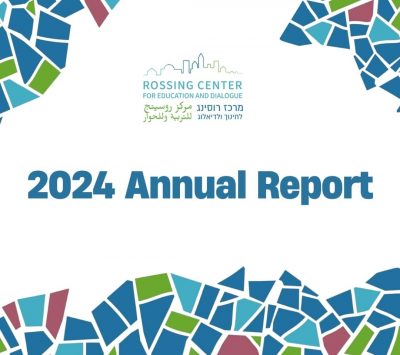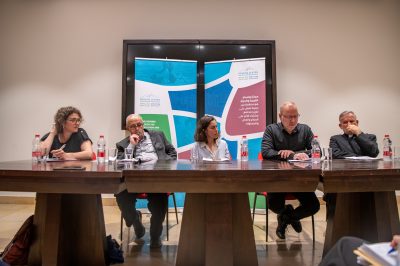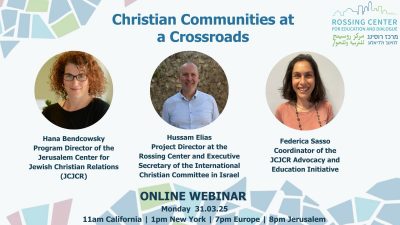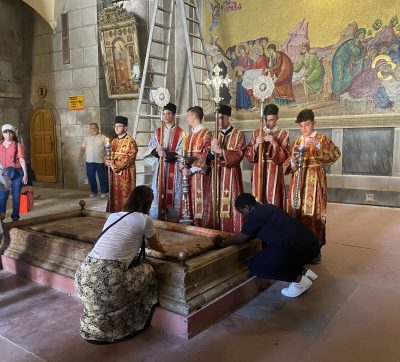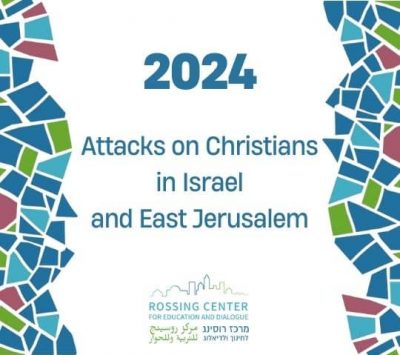By Maayan Raveh*
The Jerusalem Municipality and the State of Israel recently took action against the Churches in the capital. In response, the Churches closed the holiest place to Christian believers and sparked a storm in the world. The whole affair raises questions about the status and role of the Churches in Israel.
Last week, despite the embarrassing silence of the Israeli media, the Christian world was up in arms about the issue of the Church of the Holy Sepulcher and the dramatic decision to close it. This step was taken, according to the churches, in response to two moves against them.
The first step was a decision taken by the Jerusalem municipality to demand retroactive municipal tax payments on the church’s assets and to curtail their bank accounts until payment had been made. The second move was a bill led by Knesset Member Rachel Azaria to transfer to the state Church lands in various neighborhoods in Jerusalem. These lands were sold to private entrepreneurs, mainly by the Greek Orthodox Church.
In the end, the Church of the Holy Sepulcher remained closed for only three days, at the end of which the Prime Minister intervened in the crisis, leading to the freezing of municipal proceedings and the establishment of a Minister-lead team to resolve the issues.
The central motif of the whole affair was cynicism. The local Churches took advantage of their control of the holiest place in the Christian world, claiming “religious persecution and a systematic campaign against the Churches and Christian communities in Israel”, for political and economic ends; the Jerusalem Municipality made cynical use of the Christian communities and their relations with the Christian world, demanding the payment of huge property taxes, in order to put political pressure on the Finance Ministry to increase the municipality’s budget; and it can be claimed that the Greek Orthodox Patriarch made cynical use of the Christian communities to divert attention from the hot-potato issue of the sale of church lands to Israeli factions.

Church of the Holy Sepulcher. Photo by Anna Sulencka
From the research point of view, it seems that the Church’s position stems from the complicated status of the Christian population in Israel and the Palestinian Authority. Although the current crisis has erupted around the issue of the payment of property tax and the sale of church land, its treatment requires understanding of more fundamental issues.
The choice of Nir Barkat, the mayor of Jerusalem, to target the churches was not coincidental. It was done out of the belief that the churches would act exactly as they did – would use their connections in the West to create a diplomatic crisis with Israel that would serve his purposes.
Christians in the Middle East are often seen as hybrid beings: they see themselves as belonging to the Arab-Palestinian culture, but religiously they are part of Western culture. In Jerusalem, the situation is even more complicated since most of the ecclesiastical representation is not local, and the structures for which the Jerusalem Municipality demands municipal taxes do not serve mainly the local communities, but the pilgrims and foreign church members. However, for many Palestinian believers, this move is seen as part of the Church’s struggle over Israeli sovereignty over Jerusalem and as an expression of resistance to the occupation.
Here the central dilemma facing the local churches becomes clear – the tension between general interests and local interests. Is their job to preserve the holy places and to care for the millions of pilgrims who come to pray there, or is it their duty to serve the local Christian community? How should they allocate their resources accordingly? Should they represent the entire Christian world, or should they take a stand on the Israeli-Palestinian conflict that directly affects the local Christian communities and guide them spiritually, taking into account their actual interests?
In Jerusalem, as in Jerusalem, these questions become more acute and bring us back to the issue of cynicism: do local churches take advantage of their control over the holiest place in the Christian world for local political struggle? On the other hand, is it not the right of the churches in Jerusalem in particular and the Holy Land in general to lead their flock, to advance their interests and to use their resources to represent the local communities? Is the holiness of Jerusalem supposed to prevent them from doing so?
The whole affair is marked by the inherent tension between Jews and Christians, which is intensified by Jewish control of the Christian holy sites. The Church even hinted at the use of harsh terms of persecution and dark periods. In the recent crisis, questions of control, sovereignty, state authority and religious authority, assets and capital are combined – all involving not only conflicting interests but also a not-insignificant serving of cynicism.



